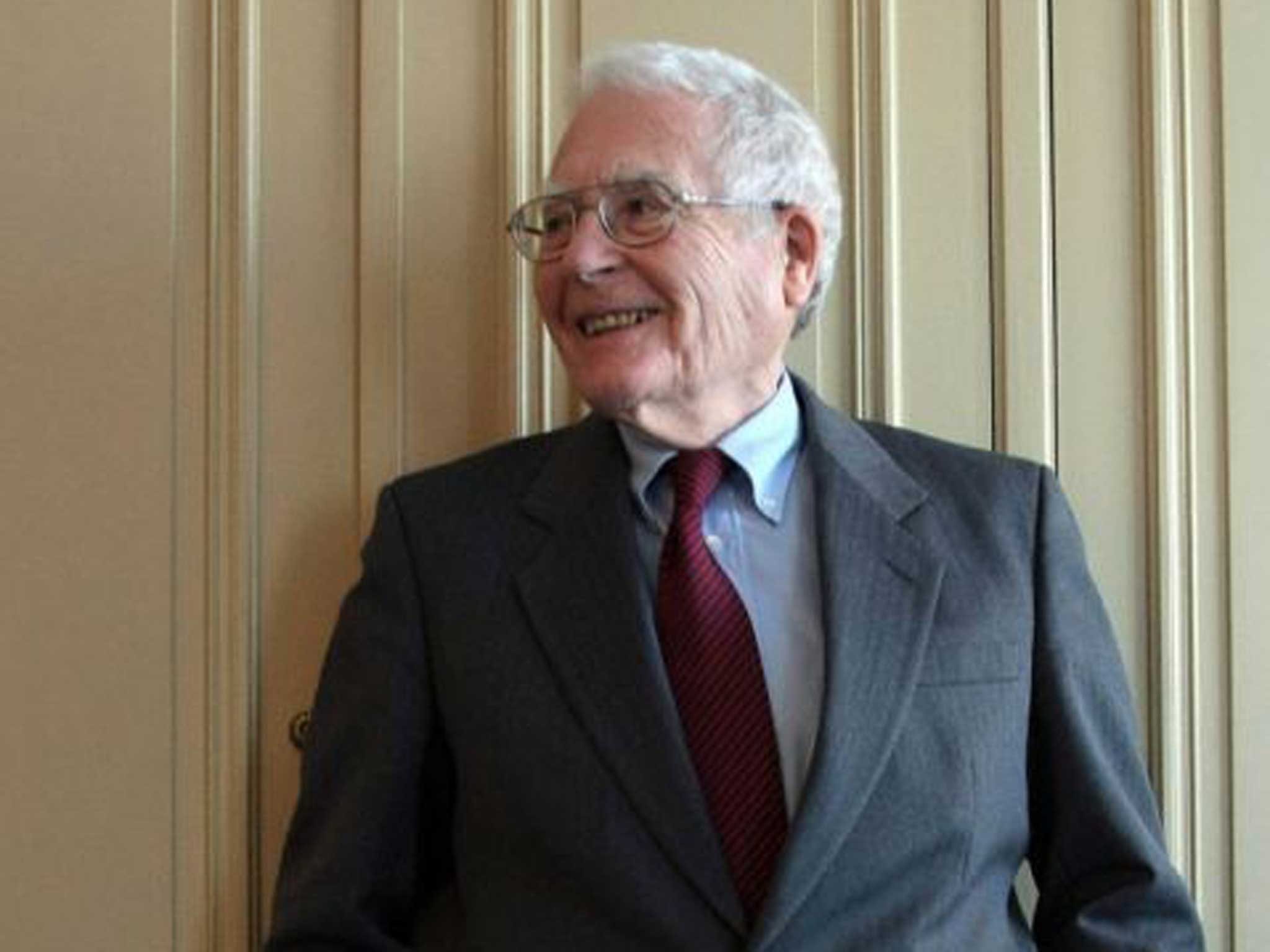Leading environmentalist James Lovelock: Humans should save themselves, not the planet
‘Modern physicists even speculate that information may be the fundamental basis of the cosmos ... if they are right, then our survival is crucial’

Your support helps us to tell the story
From reproductive rights to climate change to Big Tech, The Independent is on the ground when the story is developing. Whether it's investigating the financials of Elon Musk's pro-Trump PAC or producing our latest documentary, 'The A Word', which shines a light on the American women fighting for reproductive rights, we know how important it is to parse out the facts from the messaging.
At such a critical moment in US history, we need reporters on the ground. Your donation allows us to keep sending journalists to speak to both sides of the story.
The Independent is trusted by Americans across the entire political spectrum. And unlike many other quality news outlets, we choose not to lock Americans out of our reporting and analysis with paywalls. We believe quality journalism should be available to everyone, paid for by those who can afford it.
Your support makes all the difference.James Lovelock, the pioneering scientist and environmental guru who came up with the Gaia theory of the Earth, believes it could be time for humanity to “save ourselves” – rather than the planet.
Writing in a forthcoming collection of essays by leading thinkers, called The Earth and I, Professor Lovelock warns that life on Earth is quite close to coming to an end, at least on a cosmic timescale.
As an “elderly biosphere”, the Earth is susceptible to diseases – such as climate change caused by humans.
But Professor Lovelock, whose Gaia theory transformed the way we view the world but is an unlikely environmental hero given his support for nuclear power, the chemical industry and MI5, says talk of trying to “save the planet” is “surely hubris”.
The book features a number of scientists such as quantum physicist Professor Lisa Randall, Astronomer Royal Martin Rees, Professor Edward Wilson, a biologist known as the “father of biodiversity”, and Nobel Prize-winning neuroscientist Eric Kandel.
It has been written not in an attempt to increase the sum of human knowledge, but to help ordinary people understand “who we are, how we live and where we might be going”, according to the publisher Taschen.
Professor Lovelock once feared humanity would end up struggling to survive in the Arctic Circle as global warming made much of the Earth uninhabitable by 2100, although he later said he felt he had been too “alarmist”.
Writing in the introduction to The Earth and I, he says it is “fairly sure that the metabolic carbon form of life cannot go on much longer in cosmic terms”.
“Our star, the Sun, has been a wonderfully reliable source of energy since life began but as it grows older, it increases its output of heat at an exponentially growing rate until eventually it dies in about five billion years by cremating itself in a burst of fire,” he says.
But this increase in solar heat sets a limit on life as we know of about 100 million years, according to his calculations.
“This is a near infinite time in human terms but quite short for the Sun or for life itself,” writes Professor Lovelock, who is now in his mid-90s.
“Even without the impact of human activity, it is an elderly biosphere, and elderly biospheres, like elderly animals, grow more vulnerable to perturbations as they age.
“A disease, like pneumonia, from which one can recover when young, is often fatal for the aged.”
But his suggested strategy for the future is perhaps unexpected – concentrate on humanity, or more specifically our “information”, rather than the Earth.
“Many think our most important task is to try to save the planet, but surely this is hubris,” he writes.
“We are a powerful species, but we are, and always will be, part of a much more powerful planetary system.
“Rather than try to save Gaia, perhaps the most important thing we have to do is to save ourselves and, above all, our ability to think, to understand, to value wisdom, and to process information.”
Professor Lovelock then touches on complex ideas that have been emerging in physics since the work of 19th century Scottish scientist James Clerk Maxwell, who was compared to Isaac Newton by Albert Einstein.
“As far as we know, we remain the only species in the entire history of creation that can examine our history and imagine a different future,” he writes.
“With this unique knowledge of how we came to be, comes a responsibility both to the home we have now, and to some unimaginable future.
“Modern physicists even speculate that information may be the fundamental basis of the cosmos.
“If they are right, then our survival is crucial, even though we, who are here now, may never quite understand why.
“Paradoxically, these high-flying ideas are why we must get down to the essentials, why we must understand and respond to our planet. Why, in a phrase, we must come down to Earth.”
Join our commenting forum
Join thought-provoking conversations, follow other Independent readers and see their replies
Comments